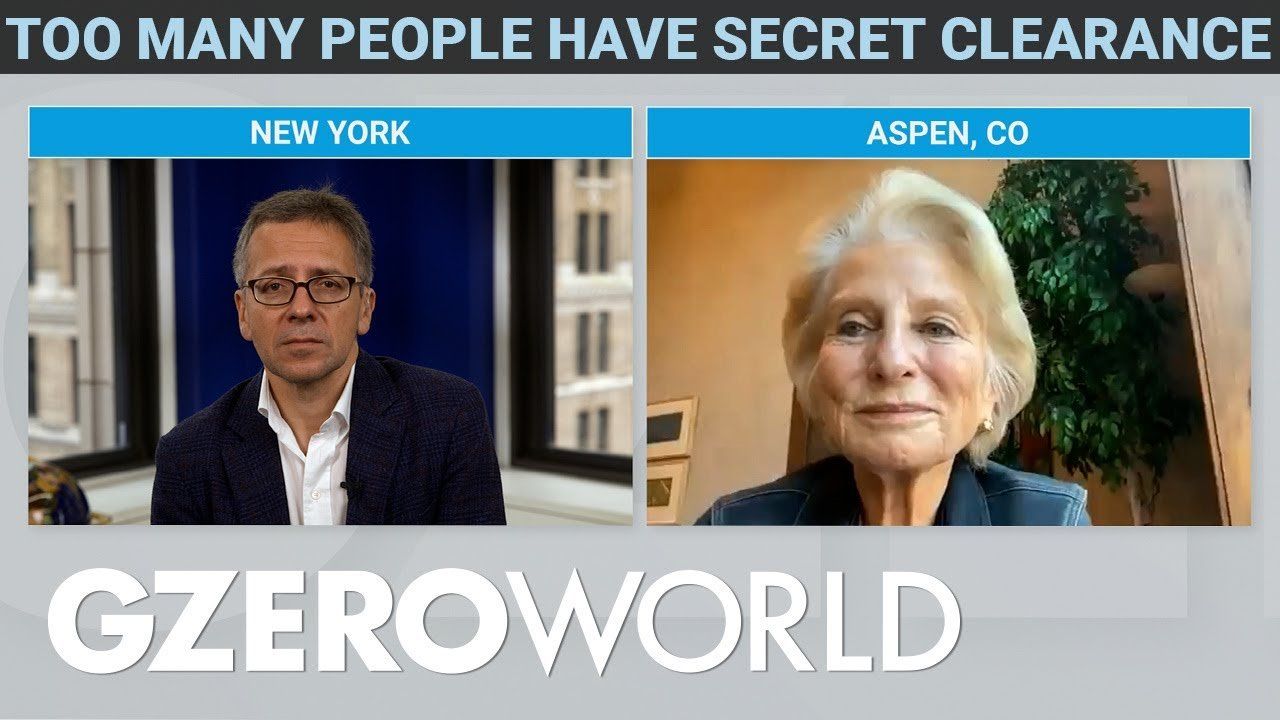Too many people have US security clearance: former House Intelligence Committee member

The US government has an over-classification problem. Too many documents are marked "secret" that shouldn't be. And according to this week's guest, the over-classification problem has also created an over-clearance problem. Jane Harman, a former nine-term Congresswoman who led high-level intelligence committees, says that the two problems are closely related. "We over-classify, we over-clear. Our clearance problem is very cumbersome" Harman tells Ian. As a result, many people with clearance tend to err on the side of classifying information rather than risking their position by making public the wrong document.
"I argued we needed a tiered classification system where you can clear people only up to a certain amount. In other words, a person who speaks a regional dialect could be given papers to read, but not told the context of the papers, so that person would just translate the language. "
But, Harman says, we're still a long way from solving this problem.
To see the full interview with Jane Harman, watch GZERO World with Ian Bremmer at gzeromedia.com/gzeroworld or on US public television. Check local listings.